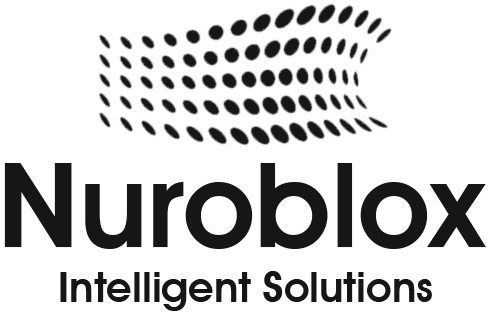11 Best Business Automation Tools in 2025
As businesses grow more complex and customer expectations rise, automation has become essential, not optional. In 2025, business automation tools will help companies eliminate manual tasks, boost productivity, and focus on what really drives value.
From automating emails and workflows to integrating apps and analyzing data, the right tools can transform how your team works. But with so many options available, choosing the best ones can be overwhelming.
In this blog, we highlight the 10 top business automation tools in 2025, covering solutions for different needs, team sizes, and industries. Whether you’re aiming to automate operations, marketing, HR, or IT, you’ll find a tool here to elevate your business performance.
Key Criteria for Selecting Automation Tools
Choosing the right automation tool is essential for maximizing efficiency and ROI. Here are the top factors to consider when evaluating business automation tools in 2025:
Ease of Use: Look for intuitive, user friendly interfaces, especially if your team has limited technical expertise. No-code or low-code platforms empower business users to automate processes without relying heavily on IT.
Integration Capabilities: Your automation tool should seamlessly connect with your existing software stack CRM, ERP, email, databases, cloud storage, and more. Robust API support and pre-built integrations are a must.
Scalability: Choose a platform that grows with your business. Whether you start with a few workflows or scale to enterprise wide automation, the tool should handle increasing complexity and volume without performance issues.
Security and Compliance: Ensure the tool follows best practices for data security, user permissions, encryption, and compliance with regulations like GDPR, HIPAA, or SOC 2. Data privacy is non negotiable.
Customization and Flexibility: The best tools allow you to tailor automation logic, triggers, and workflows to your unique processes. Flexibility ensures the tool fits your business, not the other way around.
AI and Smart Capabilities: Modern automation tools often include AI features like document processing, predictive analytics, or chatbot integration. These advanced capabilities can take your workflows from basic to intelligent.
Support and Community: Reliable customer support, documentation, training resources, and an active user community can make a huge difference during implementation and scaling.
Pricing and ROI: Evaluate the cost relative to your expected gains in time, efficiency, and output. Many tools offer flexible plans, so pick one that fits your budget and delivers measurable ROI.
Top 10 Business Automation Tools in 2025
1. NuroBlox
NuroBlox is an AI-first business automation platform built to unify Robotic Process Automation (RPA), AI agents, and end-to-end workflow orchestration. Designed for secure, enterprise-grade deployments, it enables organizations to automate not only repetitive tasks but also complex decision-based processes using intelligent agents and no-code tools.
With modules like NuroAgent, NuroFlow, and NuroTask, NuroBlox empowers both technical and non-technical teams to scale automation securely across departments—without compromising on compliance, control, or flexibility.
Key Features:
- No-code workflow builder with drag-and-drop interface
- AI-powered virtual agents for decision-driven automation
- Human-in-the-loop task management with SLA tracking
- Private cloud and hybrid deployment support
- Built-in marketplace of reusable automation components
- Enterprise-grade data privacy, audit trails, and access control
Best For:
Mid-to-large enterprises seeking intelligent, secure automation at scale—especially where AI decisioning and human input are essential.
2. UiPath – Enterprise Grade RPA for Complex Workflows
UiPath is a leading Robotic Process Automation (RPA) platform built for enterprise grade automation. Known for its powerful capabilities in automating rule based and repetitive tasks, UiPath enables organizations to streamline everything from finance operations to IT workflows.
Key Features:
- Drag and drop interface for building bots
- AI-powered document understanding
- Process mining and task analysis tools
- Integration with cloud and on-premise apps
- Enterprise level security and governance
Best For: Large enterprises looking to automate complex, cross-departmental processes at scale.
3. Zapier – Best for Automating Tasks Across SaaS Apps
Zapier is a popular no-code automation platform that connects thousands of web applications. It enables users to create “Zaps” that automate workflows between tools like Gmail, Slack, Google Sheets, and Trello with no coding required.
Key Features:
- Supports 6,000+ app integrations
- Easy to use visual editor
- Multi step workflows and filters
- Built in delay, formatting, and conditional logic
- Team collaboration features
Best For: Startups, marketers, and SMBs that want to automate workflows quickly without technical skills.
4. Microsoft Power Automate – Ideal for Office 365 Users
Formerly known as Microsoft Flow, Power Automate is a cloud based automation solution designed to integrate seamlessly with Microsoft 365 and Dynamics 365. It supports both simple task automation and more advanced RPA features.
Key Features:
- Deep integration with Microsoft ecosystem (Outlook, SharePoint, Teams)
- Desktop automation (RPA) and cloud flows
- AI Builder for intelligent automation
- Templates and pre-built connectors
- Governance and data loss prevention policies
Best For: Businesses already invested in Microsoft products looking for native, integrated automation.
5. Kissflow – Easy Workflow Automation for Business Teams
Kissflow is a cloud based platform designed to simplify workflow and process automation for non technical teams. With a focus on intuitive UI and drag and drop builders, Kissflow empowers users to automate business processes like approvals, task assignments, and document routing without writing code.
Key Features:
- No-code workflow builder
- Customizable forms and process templates
- Role based access control and permissions
- Integration with Google Workspace, Microsoft 365, and more
- Real time analytics and reports
Best For: Mid-sized businesses and departments looking for simple, scalable workflow automation.
6. Make (formerly Integromat) – Visual Automation for Complex Logic
Make is a powerful visual automation platform tailored for users who need more control and flexibility than basic automation tools like Zapier. It allows you to build sophisticated workflows with advanced logic, branching, and scheduling using a clean, drag and drop interface.
Key Features:
- Real time scenario builder with drag and drop modules
- Conditional logic, filters, iterators, and webhooks
- Supports thousands of SaaS and API based apps
- Advanced error handling and execution logs
- Affordable plans for startups and developers
Best For: Tech savvy users and developers who want deeper control over workflow logic and custom API integrations.
7. Workato – Integration + Automation for Enterprise Apps
Workato is an enterprise grade automation and integration platform that brings together data, apps, and workflows under one unified system. It supports complex business logic and multi step automation across applications like Salesforce, NetSuite, Slack, and more.
Key Features:
- Intelligent integrations with 1,000+ enterprise apps
- Low-code automation builder
- AI-powered data mapping and transformation
- Role based governance and security
- Built-in bots and workflow version control
Best For: Large businesses and IT teams needing secure, scalable automation integrated across enterprise systems.
8. Automation Anywhere – Cloud Native RPA Platform
Automation Anywhere is a powerful RPA (Robotic Process Automation) platform that enables businesses to automate end to end workflows across cloud and on-premise environments. With a focus on scalability, it supports both attended and unattended bots powered by AI and analytics.
Key Features:
- Cloud native, web based platform
- Intelligent automation with AI/ML integration
- Bot Insight analytics and process discovery
- Digital assistant for attended automation
- Secure and compliant for enterprise use
Best For: Enterprises and large businesses seeking robust, scalable RPA solutions across departments.
9. Pabbly Connect – Affordable Zapier Alternative for SMBs
Pabbly Connect is a budget friendly automation platform designed for small to medium sized businesses. It enables users to connect applications and automate repetitive tasks via workflows, offering many of the same functions as Zapier at a more affordable price.
Key Features:
- Supports popular apps like Google Sheets, Slack, Stripe, Mailchimp
- No task or operation limits on higher plans
- Multi step workflows and scheduling
- Easy to use visual interface
- Webhook and API support for custom apps
Best For:
Startups and SMBs looking for cost effective automation without sacrificing functionality.
10. Nintex – Workflow and Document Automation for Enterprises
Nintex is a comprehensive automation platform designed for business process management (BPM), with strong capabilities in workflow, document generation, and e-signatures. It’s favored by large enterprises looking to optimize document heavy, regulated processes.
Key Features:
- Workflow designer with drag and drop simplicity
- Automated document generation and routing
- E-signature integration (Nintex Sign)
- Process mapping and governance tools
- Works well with SharePoint and Office 365
Best For: Enterprises in industries like finance, healthcare, and government where compliance and documentation are critical.
11. HubSpot Operations Hub – Automation for CRM and Marketing Operations
HubSpot Operations Hub extends the capabilities of the popular HubSpot CRM by introducing advanced workflow automation, data sync, and custom scripting. It enables marketing, sales, and service teams to automate repetitive tasks while keeping data clean and connected.
Key Features:
- Workflow automation with if/then logic
- Real time data sync across tools
- Custom code actions using JavaScript
- Integration with the full HubSpot ecosystem
- Built-in error handling and troubleshooting
Best For: Businesses already using HubSpot or looking for tightly integrated CRM and marketing automation.
Conclusion
Business automation is no longer a luxury, it’s a necessity for staying competitive in today’s fast paced, digital first world. The tools highlighted in this list from enterprise grade platforms like UiPath and Automation Anywhere to user friendly solutions like Zapier and Make, offer a wide range of capabilities to streamline operations, reduce manual work, and drive smarter decisions.
When choosing the right tool, consider your business size, automation goals, technical capabilities, and budget. Whether you’re a startup looking to automate simple tasks or an enterprise seeking robust end to end workflows, there’s a solution that fits your needs.
By investing in the right automation tools now, you’re setting your business up for greater agility, efficiency, and long term growth.


